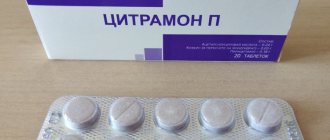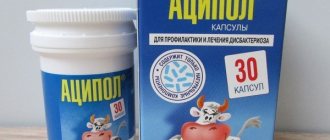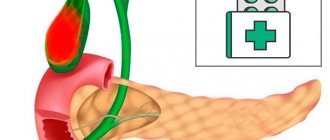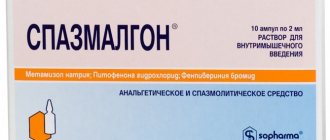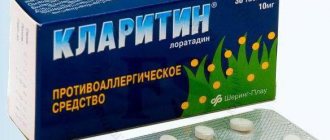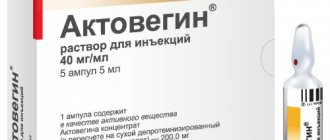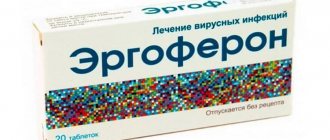Remantadine is one of the most popular drugs aimed at counteracting viral infections. The demand for it especially increases in winter, when people are more susceptible to acute respiratory viral diseases.
It is believed that the medication works best against influenza A viruses and tick-borne encephalitis. But due to the fact that many patients self-prescribe this strong medicine without prior consultation with their doctor, the risk of getting an overdose of Remantadine is extremely high.
Beneficial features
The drug is very popular due to its beneficial properties. Its use makes it possible to quickly cope with a cold. This is done due to the fact that the product envelops the cells, preventing the virus from penetrating inside. This makes it possible to slow down the spread of infection and ease the development of the disease.
Remantadine has a high effectiveness against colds. This is ensured by a number of its properties:
- immunomodulatory;
- stimulating the synthesis of interferon;
- antitoxic;
- increasing cell activity.
Thanks to its cyclic structure, Remantadine for influenza will be useful not only during drug therapy, but also as a reliable prophylactic agent. Its active components tend to act in the body over a long period of time.
The spread of the influenza virus can be prevented early in the course of the disease by using this drug. It is just not recommended to delay the start of taking the pills. If more than 2 days have not passed since the infection, then you can count on a quick and successful cure. At the first signs of a cold, you should consult a therapist who will explain how to take Remantadine for a cold in an adult and under what conditions it can be given to children.
In this case, consultation with a doctor is required, since in some diseases the drug should be taken with caution. For example, if the patient has atherosclerosis or hypertension, you need to pay attention to this, because taking pills can cause a hemorrhagic stroke or lead to an exacerbation of the disease.
During an increase in the incidence of colds, it would be a good idea to ask your local doctor how to take Remantadine tablets to prevent the flu.
Description of the drug and its pharmacological action
Remantadine is a synthetic drug.
According to its chemical structure, it is a derivative of adamantane.
Remantadine inhibits the intracellular development of viruses.
It is active against influenza and encephalitis pathogens. The action of the drug inhibits the spread of viruses to other cells of the body. The acidity of the environment inside the cell, due to the action of the drug, becomes weaker. This prevents viruses from multiplying and penetrating into the cell cytoplasm. The effect of inhibiting viruses by the drug in the initial stage of the disease works well.
The medicine effectively reduces viral toxicosis. In addition, it stimulates the production of gamma and alpha interferons, which activate the body's defenses.
The drug is absorbed into the blood as it moves through the gastrointestinal tract. As part of the blood, it enters directly into tissue cells.
The decomposition of the drug in the liver and its excretion in the urine occurs in about a day. Part of the composition of the drug is excreted unchanged by the kidneys, a certain proportion comes out as products of intracellular metabolism.
It is active against influenza and encephalitis pathogens. The action of the drug inhibits the spread of viruses to other cells of the body. The acidity of the environment inside the cell, due to the action of the drug, becomes weaker. This prevents viruses from multiplying and penetrating into the cell cytoplasm. The effect of inhibiting viruses by the drug in the initial stage of the disease works well.
The decomposition of the drug in the liver and its excretion in the urine occurs in about a day. Part of the composition of the drug is excreted unchanged by the kidneys, a certain proportion comes out as products of intracellular metabolism.
Antiviral drug. The mechanism of the therapeutic effect is associated with blocking the processes of virus reproduction and the synthesis of proteins necessary for their life.
Absorption of Remantadine occurs in the intestines at a fairly low rate. The drug is neutralized in the liver, and excreted through the kidneys. The maximum concentration is observed in nasal secretions.
Bacterial activity:
- Group A viruses;
- Group B influenza viruses;
- Tick-borne virus.
Many parents, if necessary, give their children Remantadine in the form of syrup or tablets; this drug is highly effective in fighting colds and viruses. According to the instructions for use, it is a synthetic product, the components of which are adamantium derivatives.
The drug helps block the transformation of genetic viral material into the cell cytoplasm. But if the disease has already reached a more serious stage, then Remantadine helps to stop the transcription of the virus genome and prevents virus particles from leaving the cells. The drug is active against different strains of influenza, especially group A.
When taken orally, the drug is quickly absorbed by the intestinal walls and binds to proteins in the blood. The active substances are deactivated in the liver and converted into metabolites excreted through the kidneys.
The effect of use comes very quickly:
- symptoms of the disease are less pronounced;
- the degree of serotological reactions decreases;
- The period of recovery and recovery is significantly accelerated.
Effect of the drug
It will take five hours for the drug to start working. After this time, the patient’s condition will improve and within a day:
- the temperature will drop;
- swelling of the mucous membrane of the nasopharynx will decrease;
- the headache will go away;
- breathing through the nose will become easier;
- muscle pain will decrease.
The medicine quickly blocks the spread of pathogenic microorganisms. In order to avoid getting sick, the best option is to take Remantadine to prevent the flu.
Reviews
We invite you to read the reviews of people who have used the drug Rimantadine:
- Elena. Excellent prevention of influenza, I usually buy it before the January-February epidemic begins, I’ve been going without sick leave for two years now. It costs little, but the effect is no worse than expensive medicines. There is really a nuance - it makes your stomach churn, but it’s still better than getting sick with the flu.
- Lana. It helps quickly, but the side effects last for several days: a constant buzzing in the ears as if a substation was working somewhere far away, weakness, especially in the legs, but no snot and no sore throat).
- Victor. A week ago I got sick (ARVI). A friend recommended Rimantadine. When I came to the pharmacy, I was of course surprised by how cheap it was and, to be honest, I doubted it would help, but after 2 days of taking it I felt much better. Excellent product
Side effects
Any medication has side effects. Remantadine is no exception. The medicine is usually well tolerated, and complications occur only in rare cases. While taking Remantadine for influenza, the following side effects may occur:
- Negative reaction from the gastrointestinal tract. It can manifest itself in the form of drying of the oral mucosa, attacks of abdominal pain, bloating, nausea, vomiting, and loss of appetite.
- Negative changes in the central nervous system. The patient experiences insomnia, frequent headaches, weakness and dizziness. His concentration deteriorates significantly.
- In rare cases, there may be an allergic reaction in the form of itchy spots on the skin, rash and hives.
If one or more negative signs appear, you should stop taking the drug and consult your doctor.
Pharmacological group
Pharmacodynamics
Rimantadine is an antiviral agent derived from adamantane. Effective against various strains of influenza A virus (especially A2).
Thanks to the polymer structure, long-term circulation of rimantadine in the body is ensured, so the drug is used not only for treatment, but also for the prevention of influenza.
Rimantadine suppresses the early stage of specific virus reproduction (after its entry into the cell and before the initial transcription of RNA).
Rimantadine is a weak base. Its effect is due to the ability to increase the pH of endosomes, which have a vacuole membrane and surround viral particles after they enter the cell. Thus, the drug substance prevents acidification in these vacuoles, which blocks the fusion of the viral envelope with the endosomal membrane and, as a result, interrupts the transcription of the viral genome, i.e., prevents the transfer of viral genetic material into the cell cytoplasm.
When taking rimantadine in a daily dose of 200 mg for 2-3 days before and for 6-7 days after the development of clinical symptoms of influenza A, the incidence, severity of symptoms and the degree of serological reactions are reduced. Some therapeutic effect of the drug is possible if it is taken within the next 18 hours after the first signs of influenza appear.
Pharmacokinetics
After oral administration, rimantadine is slowly but almost completely absorbed from the intestine. Approximately 40% bound to plasma proteins. Its volume of distribution is 17–25 l/kg in adults, 289 l/kg in children.
In nasal secretions, the concentration of the drug is 50% higher than in blood plasma. Maximum plasma concentrations: 181 ng/ml – when taking a daily dose of 100 mg, 416 ng/ml – when taking a daily dose of 200 mg.
Metabolized in the liver. It is excreted by the kidneys mainly in the form of metabolites (75–85%), partially unchanged (15%). The half-life is 24–36 hours, but increases by 2 times in patients with concomitant chronic renal failure.
In renal failure and in elderly patients, accumulation of rimantadine in toxic concentrations is possible unless the dose is adjusted in proportion to the decrease in creatinine clearance.
- from the respiratory system: shortness of breath, cough, bronchospasm;
- from the nervous system: movement disorders, fatigue, headache, insomnia, impaired concentration, confusion, depressed mood, irritability, hyperkinesia, drowsiness, hallucinations, dizziness, tremor, euphoria, convulsions;
- from the gastrointestinal tract: dryness of the oral mucosa, loss of appetite, nausea, diarrhea, abdominal pain, vomiting, dyspepsia;
- from the cardiovascular system: loss of consciousness, cerebrovascular accident, arterial hypertension, heart block (heart rhythm disturbance), tachycardia, palpitations, heart failure;
- from the senses: loss or change in sense of smell, tinnitus;
- other: fatigue, rash.
Rimantadine reduces the effect of antiepileptic drugs.
The influence of other drugs on the action of rimantadine:
- adsorbents, enveloping and astringent agents reduce absorption;
- cimetidine reduces clearance by 18%;
- acetylsalicylic acid and paracetamol reduce the maximum concentration (by 10 and 11%, respectively);
- agents that acidify urine (including ammonium chloride, sodium bicarbonate, diacarb, acetazolamide, ascorbic acid) increase excretion by the kidneys and, as a result, reduce the effect.
Gastralgia, allergic reactions.
| Category ICD-10 | Synonyms of diseases according to ICD-10 |
| A84 Tick-borne viral encephalitis | Tick-borne encephalitis |
| Tick-borne encephalitis | |
| J10 Influenza caused by an identified influenza virus | Influenza A |
| Influenza B | |
| Influenza type A | |
| Flu type B | |
| J11 Influenza, virus not identified | Flu pain |
| Flu | |
| Flu in the initial stages of the disease | |
| Flu in children | |
| Influenza condition | |
| Influenza | |
| Beginning flu state | |
| Acute parainfluenza disease | |
| Parainfluenza | |
| Parainfluenza condition | |
| Influenza epidemics |
Recommendations for use and dosage
At the first signs of an acute viral infection, you should first visit a doctor. He will advise you on how to take Remantadine for the flu and select the appropriate dosage for treatment therapy. The specialist will determine the duration of taking the drug.
If the patient is over 50 years old, the regimen for using Remantadine will differ from the usual prescription. This is due to the fact that the condition of an older patient may worsen. While taking the drug, he may experience pressure surges. In such cases, there is a risk of very rapid development of Parkinson's disease or severe atherosclerosis.
To draw up a medication regimen, it is necessary to take into account the patient’s age:
- For adults, the optimal dose is 2 tablets three times a day, in the morning, during the day and before bedtime.
- Children from 7 to 10 years old can take 1 tablet twice a day.
- For teenagers from 11 to 15 years old, the norm is 1 tablet 3 times a day.
The course of treatment is usually 5 days. It is recommended to take the medicine with large quantities of water. It is forbidden to use the drug on an empty stomach; it is recommended to take the tablets 30 minutes after eating.
Remantadine cold tablets are not always suitable for children, so syrup is produced for convenience. In this form, it can be given to babies who have just turned one year old. While tablets can only be taken after the child is 7 years old.
The syrup is given according to the following scheme:
- From 1 to 3 years. Start with 20 ml 3 times a day on the first day of the disease. On days 2 and 3, the amount is kept the same, but the medicine is given twice, morning and evening. On the 4th day, the child should drink 20 ml of syrup once.
- From 3 to 7 years. The regimen will be the same, except for one difference - the dose will be 30 ml.
The course of therapy for children is 4 days. How to take Remantadine to prevent influenza when the epidemic is just beginning, you should ask your therapist. He will select an individual dosage appropriate to the patient’s age and health condition.
conclusions
Remantadine is a budget-friendly, but at the same time quite effective drug for the prevention and treatment of influenza, colds, tick-borne encephalitis, and herpes. It is most effective at the initial stage of diseases.
The main thing is to remember the indications and contraindications of the drug and follow the dosage. The medicine should not be taken by pregnant and breastfeeding women and children under seven years of age.
If you follow all the rules of admission and the recommendations of your doctor, recovery will come faster and no negative complications will arise.
Contraindications
It is important to know not only how to take Remantadine for a cold, but also in what cases it is contraindicated to take it. It is not recommended to use it:
- if the patient has epilepsy;
- under 7 years of age;
- with thyrotoxicosis, when the functioning of the thyroid gland is increased;
- during pregnancy;
- in case of liver pathology, especially with cirrhosis or viral hepatitis;
- in cases of chronic or acute kidney disease;
- in case of hypersensitivity to the components of the drug;
- if the patient is diagnosed with cerebral sclerosis.
Taking this medicine requires mandatory consultation with a specialist. You cannot prescribe pills to yourself. Only a therapist should describe the regimen for taking Remantadine for colds.
special instructions
Rimantadine is used with caution in cases of arterial hypertension, epilepsy (including a history), and cerebral atherosclerosis.
When using rimantadine, exacerbation of chronic concomitant diseases is possible. Elderly patients with arterial hypertension have an increased risk of developing hemorrhagic stroke. If there is a history of epilepsy and anticonvulsant therapy, the risk of developing an epileptic seizure increases with the use of rimantadine. In such cases, rimantadine is used at a dose of up to 100 mg/day simultaneously with anticonvulsant therapy.
For influenza caused by virus B, rimantadine has an antitoxic effect.
Prophylactic administration is effective during contacts with sick people, during the spread of infection in closed groups and at a high risk of developing the disease during an influenza epidemic. Viruses resistant to the drug may emerge.
Compatibility with other drugs
Despite the fact that the product is very effective, it should be borne in mind that not all drugs can be used with it. A number of medications can reduce its effectiveness. It is not recommended to take Remantadine with medications such as:
- Paracetamol;
- Acetylsalicylic acid;
- Panadol;
- Cardiomagnyl;
- Efferalgan;
- Aspirin;
- Cimetidine.
All these drugs significantly impair the absorption of Remantadine. As a result, this may neutralize the antiviral effect of the drug. Caution should be exercised if there is any chronic disease or health condition that requires the use of auxiliary medications:
- Taking vitamin C will partially counteract the effectiveness of the antiviral medication.
- Drugs that reduce urine acidity, on the contrary, enhance the effect of Remantadine. These drugs include sodium bicarbonate and diacarb.
- The use of antiepileptic drugs will not be very effective because the antiviral drug negatively affects their effectiveness.
- Adsorbents and coating agents will reduce the effectiveness of Remantadine. These include activated carbon, Gaviscon, Almagel and their analogues.
All these facts should be taken into account while taking antiviral medication. Before starting a course of therapy, you need to find out how to take Remantadine for a cold.
It is not always easy to choose the right drug for a cold. The disease cannot be left to chance. A reliable option is to prepare for the cold period, when the incidence rate is very high. In this case, Remantadine is perfect for flu prevention.
Compound
The material is for informational purposes only. For accurate information, consult a specialist.
Remantadin is a synthetic drug that can effectively fight influenza viruses at the onset of the disease and prevent infection.
Its active components successfully fight pathogenic microflora, support the immune system and eliminate general intoxication of the body.
The medicine is sold in pharmacies without a prescription, but before starting treatment, you need to study the instructions for use of Remantadine.
The active component of the drug is rimantadine hydrochloride. It comes in tablet and capsule form. Remantadine tablets contain cellulose microcrystals, lactose, magnesium stearate and potato starch as excipients. In addition to the indicated components, the capsules contain stearic acid, gelatin compounds, titanium dioxide and dye.
- The medicine in the form of tablets has a flat cylindrical shape and is colored white. Packaging consists of contour packages placed in cardboard boxes.
- Remantadine capsules are white, with a powdery substance inside. The color of the composition can vary from pink to light brown, with whitish inclusions. The packaging of the product is the same as for the tablets.
- And “Remantadine” for children is presented in the form of syrup and is approved for use from 2 years of age.
The medicine can be stored for up to 5 years from the date of manufacture in a dry and dark place. The recommended temperature is no more than 25 degrees. "Remantadine" is active against influenza A viruses and encephalitis resulting from tick bites. Its action is to inhibit the cells of pathogenic microorganisms and prevent their subsequent reproduction.
The antiviral properties of the drug are best manifested at the early stage of infection. After administration, the active components are absorbed almost completely in the intestine, but the absorption process proceeds rather slowly. Metabolism occurs in liver cells, and the drug is excreted in the urine. Approximately 24–36 hours after administration, most of the medicinal mass is converted into metabolites, and 10–15% is released unchanged.
Attention! Elderly people and patients suffering from kidney diseases need to reduce the dosage of Remantadine, since due to these disorders its elimination slows down and intoxication may occur.
Taking Remantadine is recommended for children and adults for the prevention and treatment of influenza in the initial stages. This will help prevent infection during outbreaks of seasonal epidemics. The remedy is also intended to prevent tick-borne encephalitis after an insect bite. Despite the fact that the drug can be freely purchased at the pharmacy, you should not self-medicate.
How to recognize an overdose
Studies have shown that Remantadine against ARVI and influenza almost never leads to an overdose. Especially if you take it strictly according to the scheme outlined in the instructions.
The following signs may indicate an overdose of the drug:
- Heart rhythm disturbance.
- Hyperactivity.
- Anxiety.
- Hallucinations (recorded very rarely).
If you notice such symptoms, you should immediately stop taking the medication and call a doctor: most often, to neutralize the effect of Remantadine, he prescribes injections of Physostigmine. The dosage of Physostigmine in such cases is 0.5 mg (for children over one year old) and 2 mg when the patient is over 14 years old.
